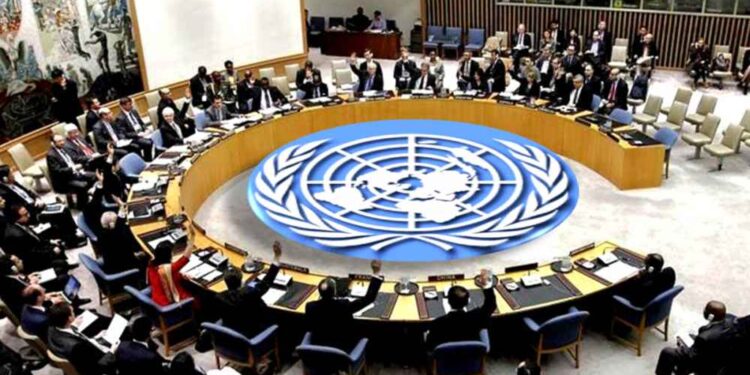The push for Africa’s permanent seat in UNSC has gained momentum as United Nations officials call for a significant reform of the Security Council’s structure. This movement aims to address the glaring absence of permanent African representation in one of the world’s most influential decision-making bodies, despite the continent’s population exceeding one billion people.
The Case for African Representation
UN Secretary-General Antonio Guterres, addressing a high-level debate at the Security Council, emphasized the urgent need for reform. He stated, “We cannot accept that the world’s preeminent peace and security body lacks a permanent voice for a continent of well over a billion people.” Guterres further stressed that Africa’s views on peace and security issues, both within the continent and globally, are currently undervalued.
The current composition of the UN Security Council consists of 15 members. Five of these – China, France, Russia, the United States, and the United Kingdom – hold permanent seats with veto power. The remaining ten non-permanent seats are allocated regionally, with Africa currently holding three of these rotating positions.
African Demands and Global Support
Sierra Leone’s President Julius Maada Bio, speaking at the UNSC, articulated Africa’s specific demands. The continent is seeking two permanent seats with veto power and two additional non-permanent seats. Bio emphasized that the African Union would be responsible for choosing the permanent members to represent the continent.
This push for reform has garnered support from other UN officials. UN General Assembly President Dennis Francis stated that the continued underrepresentation of Africa in the Security Council is “simply wrong” and goes against principles of equity and inclusion. Francis argued that the UN must reflect the world as it is now, rather than its state nearly 80 years ago when the organization was founded.
The timing of this renewed push for African representation is significant. Carlos Lopes, a professor at the University of Cape Town and former high representative for the African Union, noted that the current geopolitical climate is “quite favorable” for Africa’s aspirations.
Lopes highlighted the growing importance of Africa’s bloc in international politics. The continent’s ability to navigate complex geopolitical tensions has strengthened its position. This was recently evidenced by the expansion of the G20 to include the African Union, marking a recognition of Africa’s increasing global influence.
The professor also pointed out that there’s now a “competition for Africa’s votes” in international forums. This has made it more challenging for other global powers to align the African bloc with their positions, giving African nations more leverage in negotiations.
Challenges and Opposition in UN Security Council
Despite the growing support and seemingly favorable conditions, the path to reforming the UN Security Council faces significant challenges. Any change to the council’s structure requires the approval of two-thirds of UN member states and the unanimous support of the current permanent members.
Historically, attempts to reform the UNSC have been met with resistance from various quarters. Some current permanent members may be reluctant to dilute their influence by adding new permanent seats. Additionally, there may be debates about which African countries should occupy the proposed permanent seats, potentially leading to intra-continental disagreements.
The Broader Context of UN Reform
The push for African representation in the UNSC is part of a larger conversation about the need to reform the United Nations to better reflect the current global reality. Critics argue that the current structure, established in the aftermath of World War II, no longer accurately represents the distribution of global power and population.
Other regions, such as Latin America and the Caribbean, have also called for better representation in UN decision-making bodies. The debate extends beyond just the Security Council, touching on issues of equitable representation across various UN agencies and initiatives.
The call for “Africa’s permanent seat in UNSC” represents a crucial moment in the ongoing struggle for more equitable global governance. As the world continues to evolve, the pressure for international institutions to adapt will likely intensify. The outcome of this push for African representation could set a precedent for future reforms and significantly impact the balance of power in global decision-making processes.
Whether this initiative succeeds will depend on complex diplomatic negotiations, the ability of African nations to maintain a united front, and the willingness of current power holders to embrace change. Regardless of the immediate outcome, this movement has already spotlighted the need for more inclusive and representative global governance structures in the 21st century.
For Updates
Related News
















